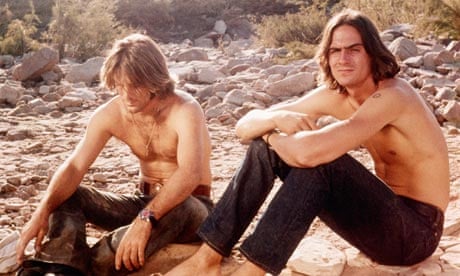The concept of the road movie goes back to Homer's Odyssey. But the genre wasn't named until the early 1970s when a group of American countercultural pictures much influenced by the new European cinema demanded collective recognition. Arguably the best was Two-Lane Blacktop, the existential masterpiece directed by Monte Hellman, who'd been responsible for the first west coast production of Waiting for Godot and learned his moviemaking skills working on low-budget Roger Corman films. It centres on a driving contest across the American south-west between two cool, laconic hipsters (musicians Dennis Wilson and James Taylor) driving a souped-up 1955 Chevrolet, and a chameleon conman (Warren Oates's finest performance), who drives a GTO Pontiac and presents a different face to everyone he meets. None of the characters has a name, and the film's epigraph could well be a line from Kris Kristofferson's "Me and Bobby McGee" that figures on the soundtrack: "Freedom's just another word for nothing left to lose".
Two-Lane Blacktop should have established Hellman as one of the great directors of his generation. Instead, its box-office failure made him an enduring cult figure. The attractive extras on this handsome Blu-ray version include a conversation between Hellman and Kristofferson.

Comments (…)
Sign in or create your Guardian account to join the discussion